Postcard Project: Poetry & Environmental Justice
In March 2021, Kundiman joined more than 25 other independent poetry organizations in the Poetry Coalition to create month-long programming to uphold the value of poets in our communities and daily lives. This year's theme was, “It is burning./ It is dreaming./ It is waking up.: Poetry & Environmental Justice”. The line “It is burning./ It is dreaming./ It is waking up.” is from the poem “Map” by Linda Hogan. Poetry Coalition members came together to share how poetry can provoke questions about environmental justice and to encourage engagement with this crucial topic. The Poetry Coalition's combined programs reached an audience of more than 300,000 individuals nationwide.
Kundiman continued its annual Postcard Project tradition as part of its programming for the Poetry Coalition. Kundiman fellows wrote and sent postcard poems to each other every day throughout the month of March. While encouraged to respond to the theme of Poetry & Environmental Justice, fellows were encouraged to write on whatever inspired them—many sent words of comfort during a year of continued covid restrictions. The greater Kundiman community was also invited to participate by sending their own postcards and following along with weekly prompts and suggested readings posted via Kundiman's announcement page. Images of postcards sent in from the community were shared every week via Twitter, Facebook, and Instagram, using the hashtags #kundimanpostcards and #postcardproject.
We’ve collected the weekly prompts, reading links, and all of the pictures of the community's poems here for everyone to view and revisit! Thank you to everyone in the community who participated and followed along with the project this year.
2021 Postcard Gallery
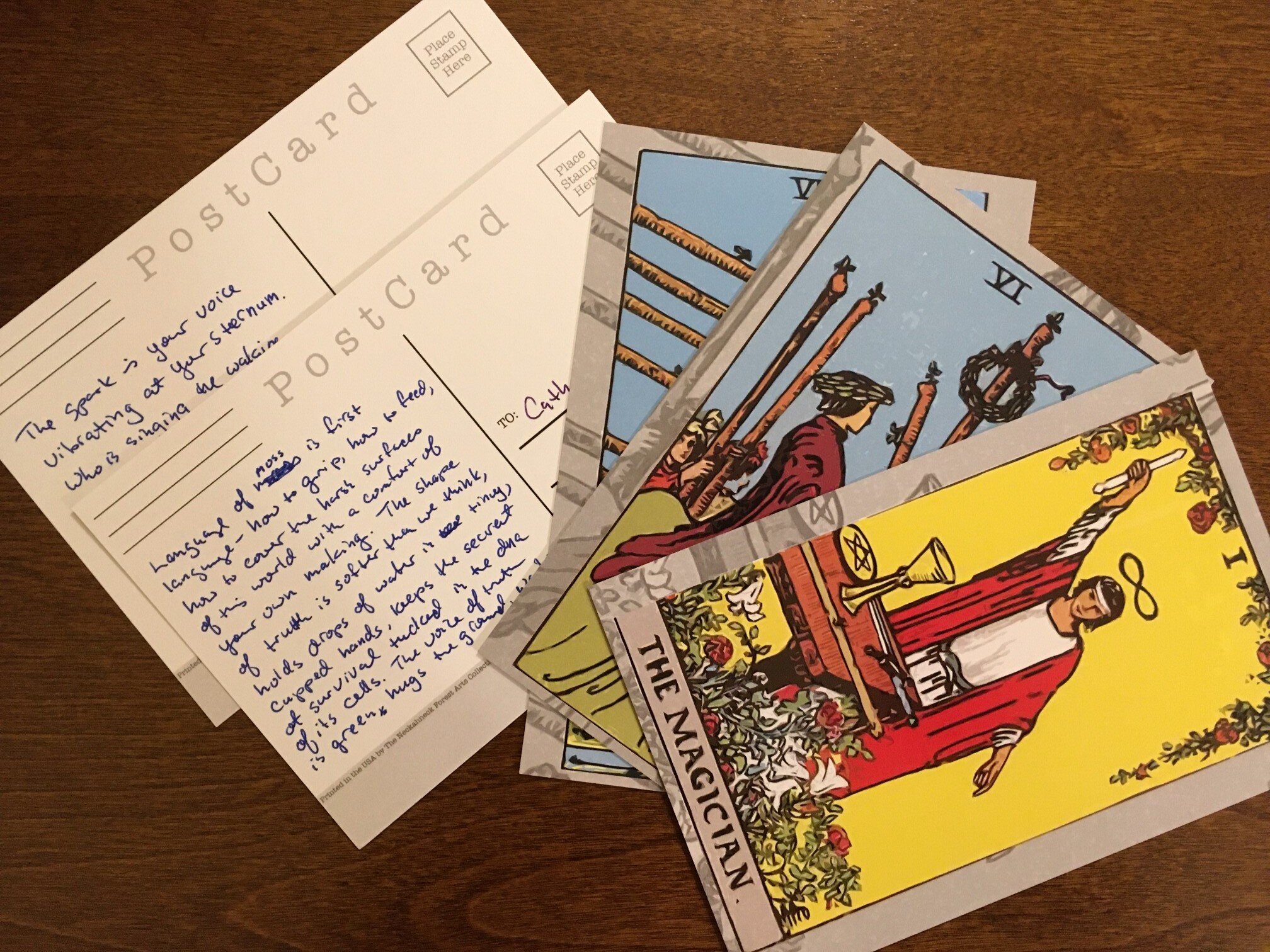
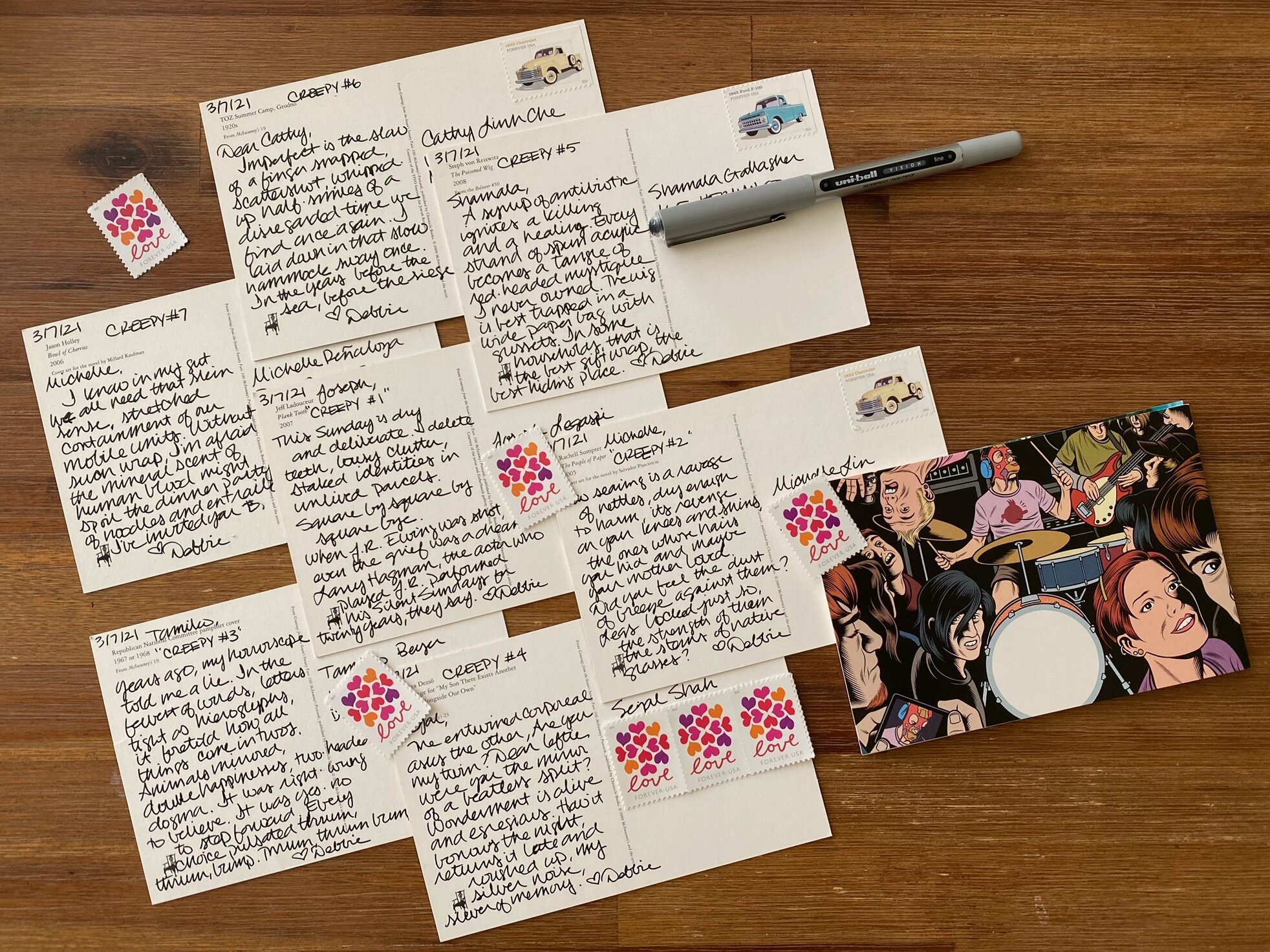
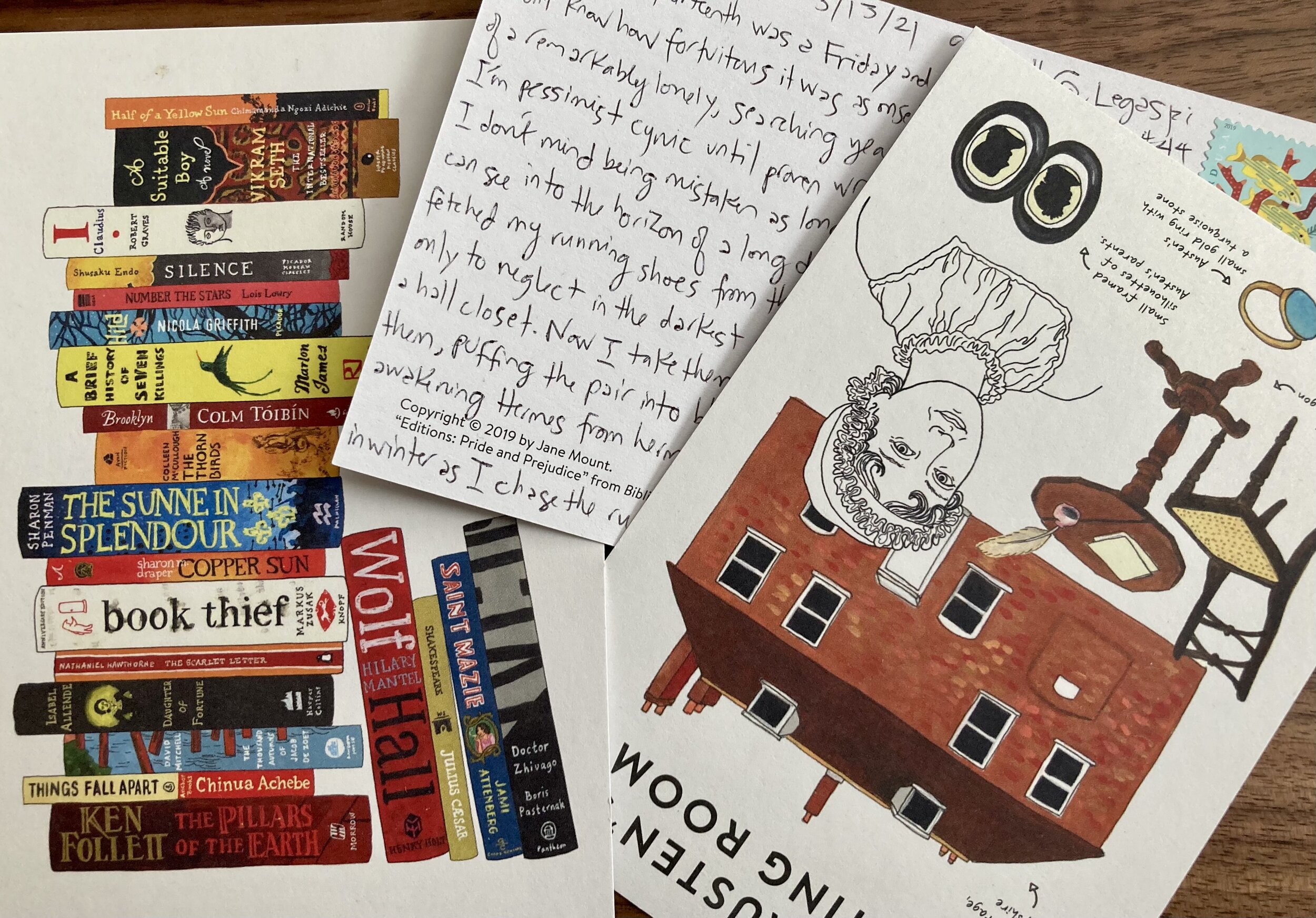
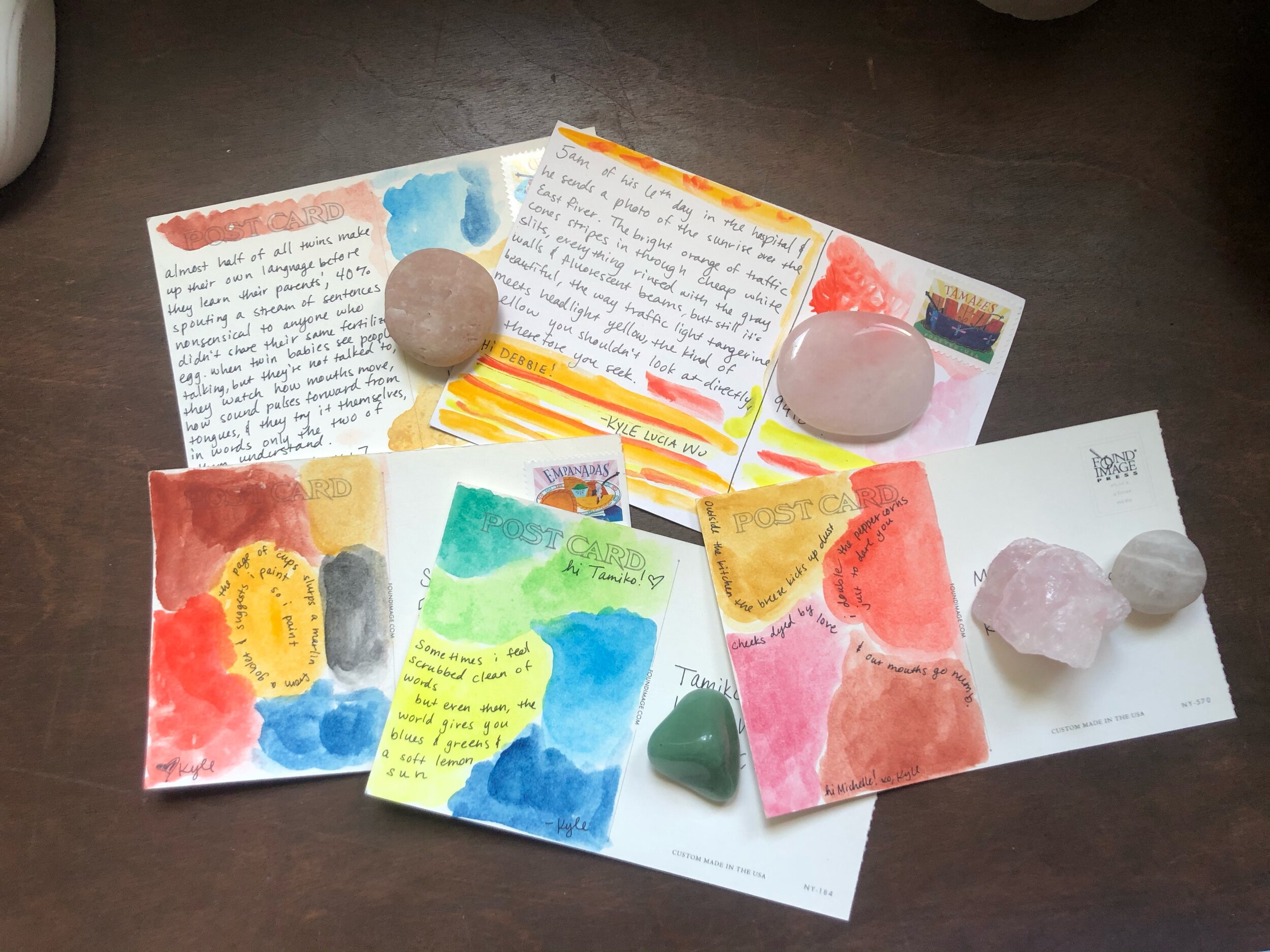
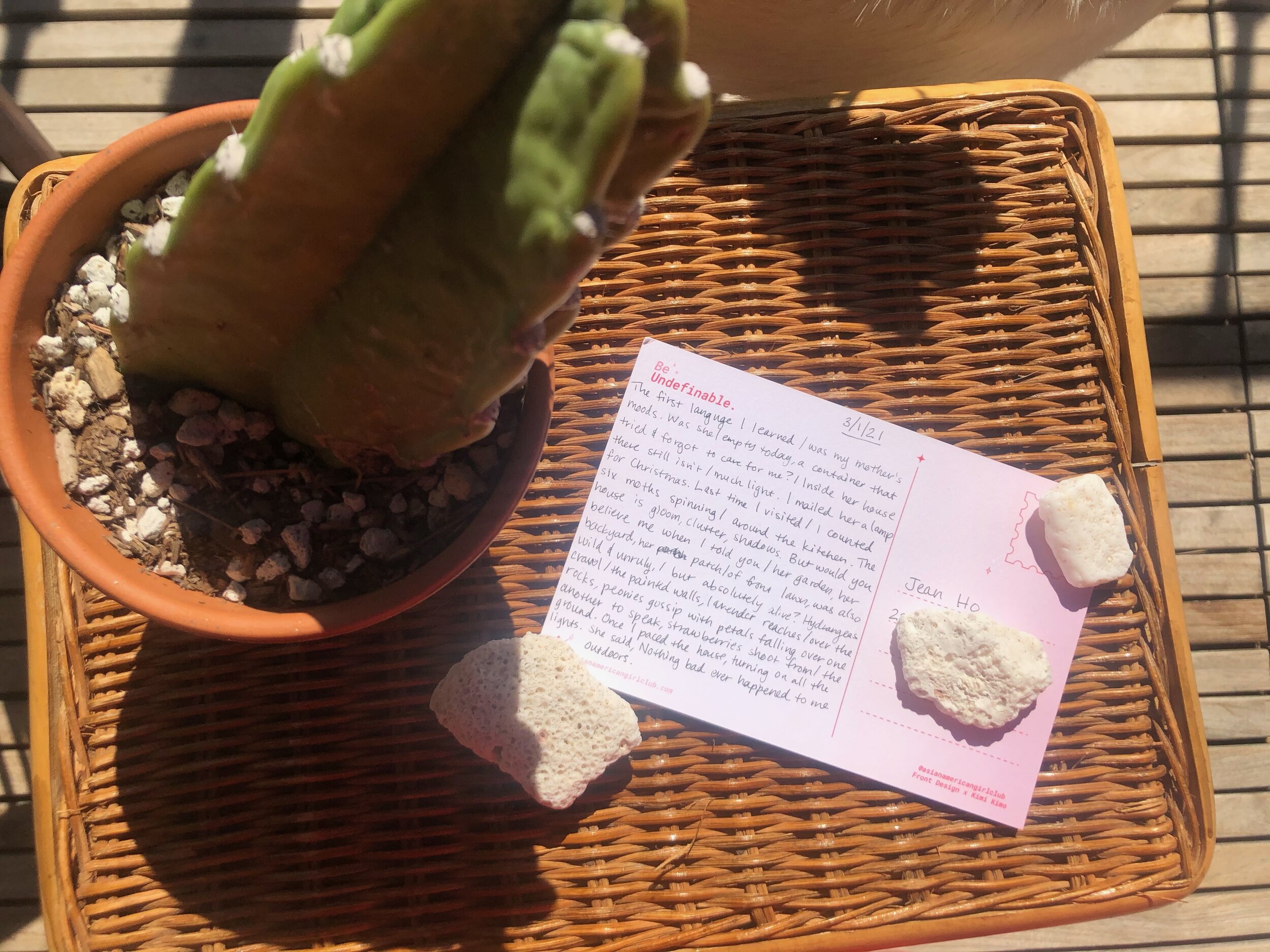
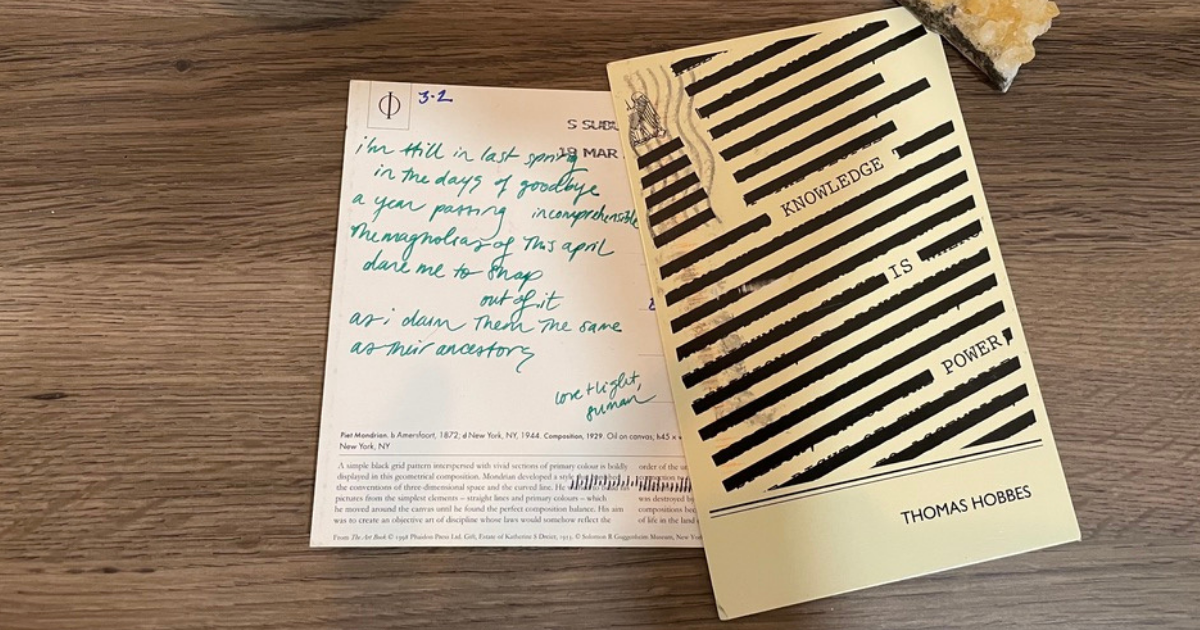
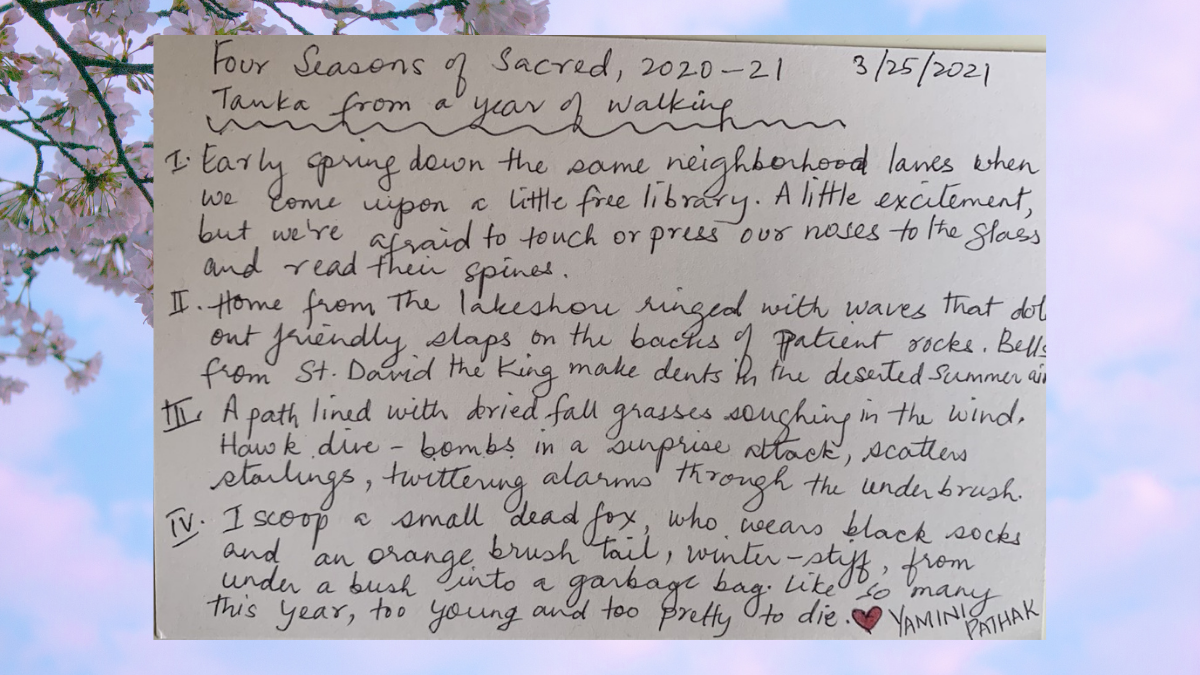
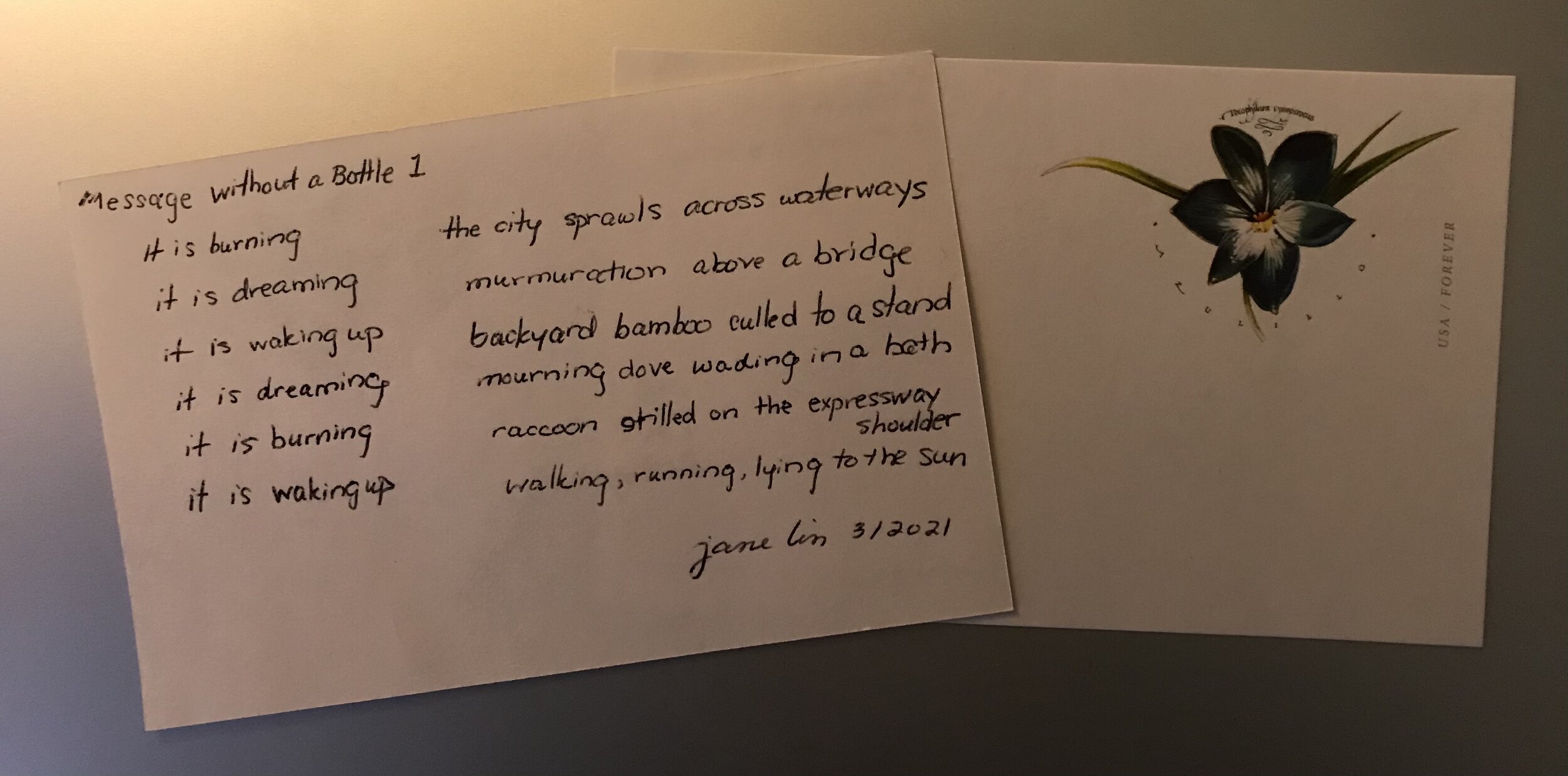
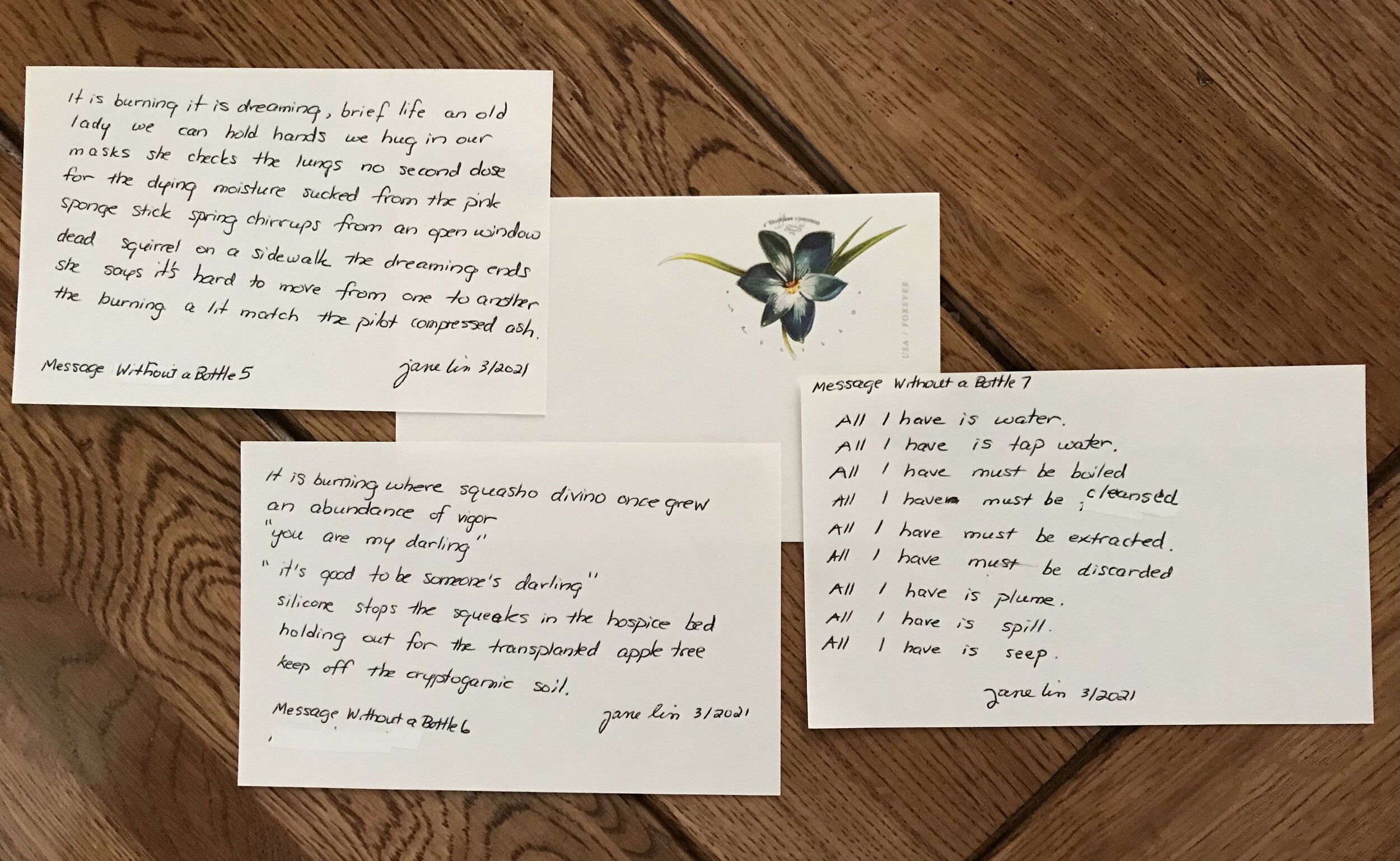
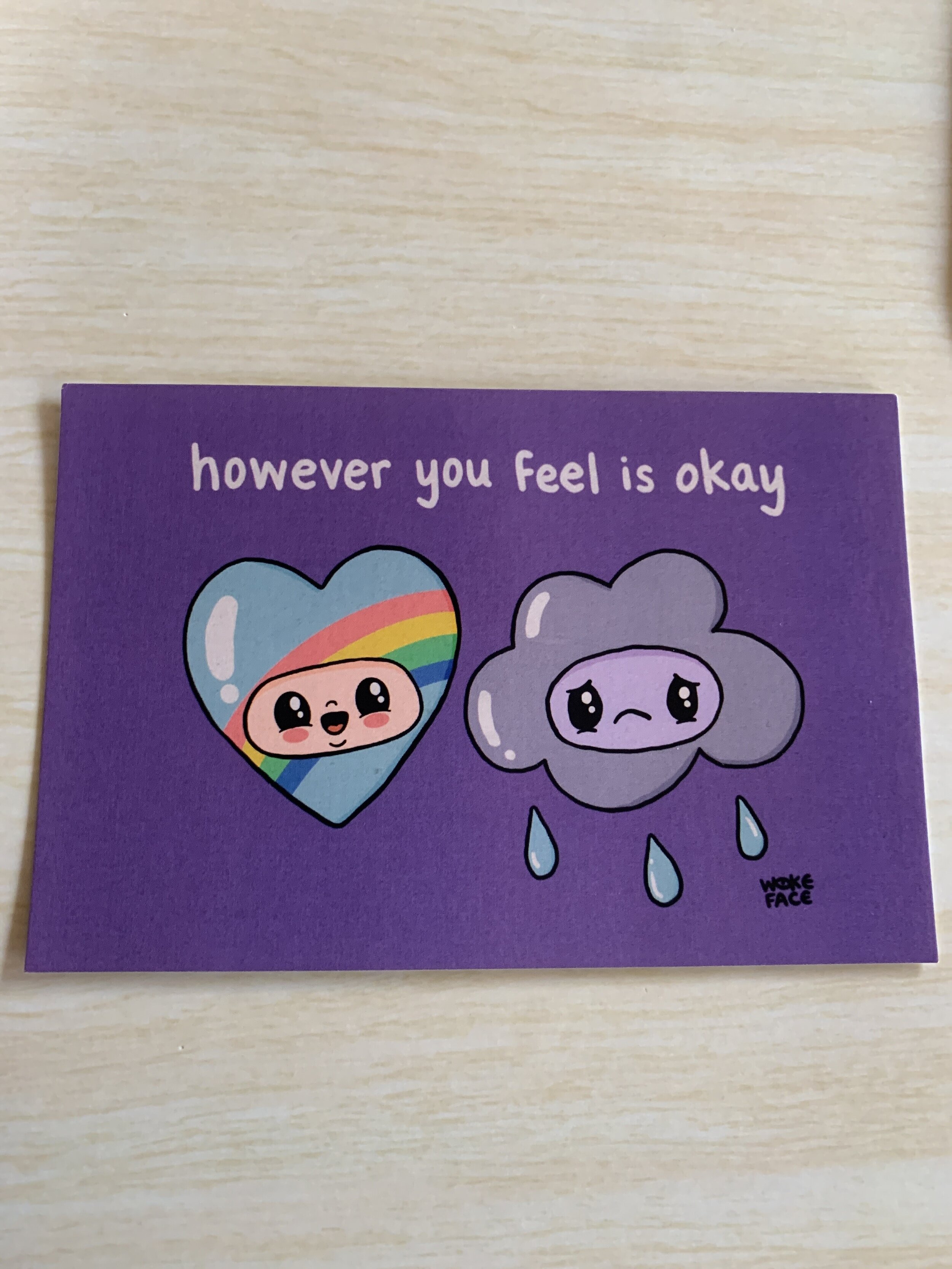
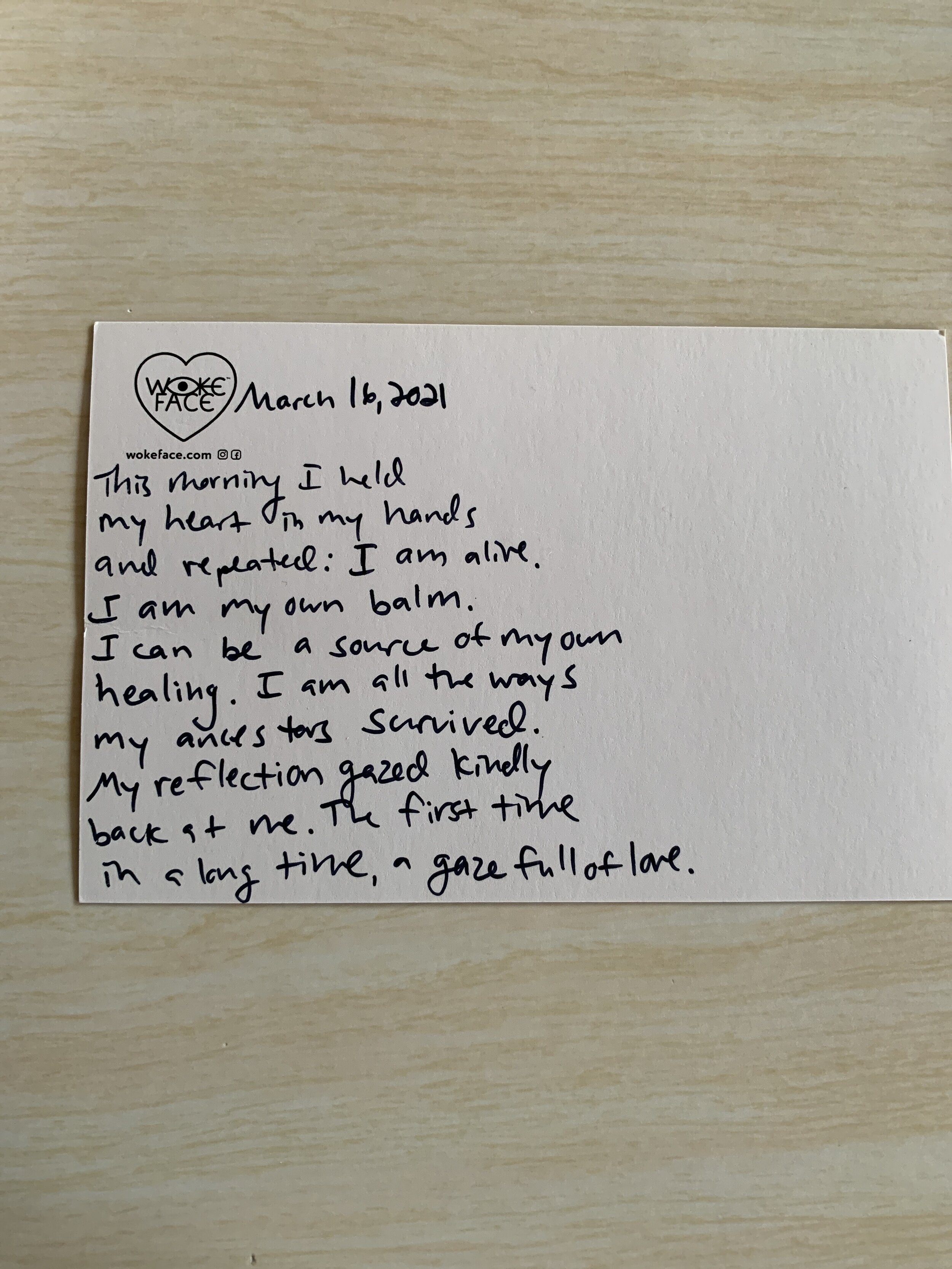
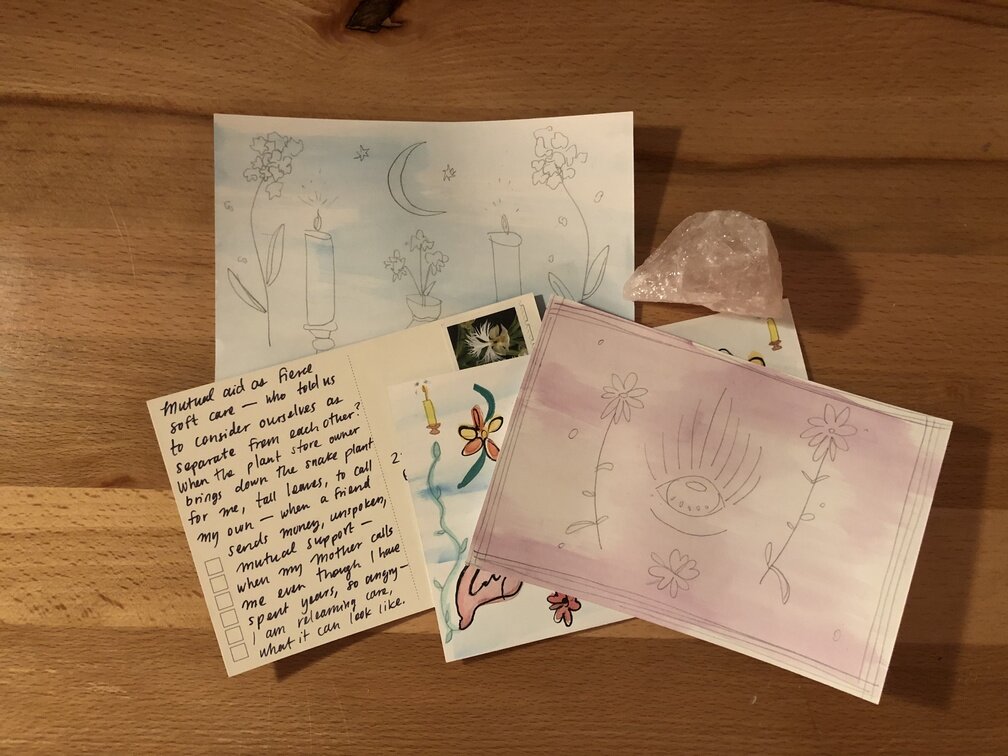
Weekly Prompts and Suggested Reading
Each week, participating Kundiman Fellows received an e-mail with suggested prompts and readings focused on the theme Poetry & Environmental Justice. We hope that these prompts and resources are informative and can serve as starting points for your own poems!
"Environmental Justice” by social justice artist Ricardo Levins Morales.
WEEK 1
PROMPTS:
What stands out to you as sacred in your corner of the
world? If you can, take a walk around your neighborhood,
and write down the first five things you notice. See how
many of them you can fit into a poem!
Linda Hogan writes in "Map": "This is what I know from
blood: / the first language is not our own." In the language
that feels most like your own, think of two or three words
that describe your favorite outdoor setting. Write a poem
about how it feels to be in this setting and describe it using
the words you thought of!
Environmental justice teaches us that all communities
deserve equal protection from environmental harm. It's hard to not think of
the power outage in Texas, and how mutual aid organizations have been providing vital support. What does mutual aid mean to
you? How have you seen it in action in communities? Write a poem about a specific moment of aid and care.
SUGGESTED READING & LINKS:
The Principles of Environmental Justice, drafted by Delegates to the First National People of Color Environmental Leadership
Summit held in October, 1991.
To Survive Climate Catastrophe, Look to Queer and Disabled Folks by Patty Berne & Vanessa Raditz
A directory of mutual aid organizations in Texas. Please share, donate, and help however you can!
Linocut print by activist and artist Annie Morgan Banks.
WEEK 2
PROMPTS:
Do you have a favorite love poem that you could rewrite,
but to an element in nature? Craig Santos Perez's poem Love
in a Time of Climate Change recycles Pablo Neruda's
"Sonnet XVII". He writes, "I love you without knowing
how or when this world / will end." What do you love,
without knowing when this world will end?
When disaster comes, what do you imagine yourself doing?
What will you miss the most? In "How to Let Go of the
World" Franny Choi writes, "When disaster comes, some of
us will stand on the rooftop to address the ghosts. / Some of
us will hold the line." Write a poem that describes what
would be most important to you, if the world were to end!
What changes would make the planet more sustainable? If
you could change anything about the world as it is right
now, what would you change? Pick one example (place, person, idea) and write about how that change would show up in the world
around you.
SUGGESTED READING & LINKS:
Unequal Impact: The Deep Links Between Racism and Climate Change, an interview with climate activist Elizabeth Yeampierre.
Here is a linocut art print by organizer/activist Annie Morgan Banks to inspire some drawings, if you're so inclined!
"Liberation” by painter Satsuki Ishibuya.
WEEK 3
PROMPTS:
How can we practice mindfulness and care in the face of
environmental change? Fatimah Asghar writes in I Don’t
Know What Will Kill Us First: The Race War or What
We've Done to the Earth, "behind / your head a butterfly
rests on a tree; it’s been / there our whole conversation".
Write a poem about the spaces and moments that offer you
a sense of stillness and peace.
Imagine an animal visits you while out in nature—where
would it take you? Jane Wong writes in This is What
Survival Looks Like, "What if I had / climbed up there with
them, my striped / tail a broom sweeping rage clean?" Write
a poem about this encounter!
If you could speak to your ancestors about their relationship
with nature, what would they share with you? What might you want to ask them? Write a poem about what this conversation
might look like.
SUGGESTED READING & LINKS:
Decolonizing Environmentalism by Jazmin Murphy
These soothing watercolor paintings from Satsuki Shibuya might inspire your own abstract art!
Print by activist Chiara Acu.
WEEK 4
PROMPTS:
Write a poem that dreams of a world where climate change
has been solved, or healed. What does this world look like?
Who is responsible for the healing?
If humans had to move to another planet to survive, what
world would we migrate to? What animals, plants, or
creatures would we find there? What systems would we live
in?
Use this line from Li-Young Lee to begin your postcard
poem, "From blossoms comes—". What do flower blossoms
create for you? Seeds, fruits—maybe a memory, or an
emotion?
Lee writes, "From blossoms comes / this brown paper bag of
peaches...There are days we live / as if death were nowhere /
in the background; from joy / to joy to joy, / from wing to
wing, / from blossom to blossom to / impossible blossom, to
sweet impossible blossom."
SUGGESTED READING & LINKS:
"Redshift and Portalmetal," by micha cárdenas, an electronic literature piece that uses space travel to look at the experience of
migration for a trans woman of color—shared by Ching-In Chen.
Radical and hopeful art by Chiara Acu.
Illustration by Lee Kyutae.
WEEK 5
PROMPT:
Where is your absolute favorite place in the world? Imagine
yourself walking through a doorway that magically
transports you to this place—what do you feel when you are
there? Who do you wish could be there with you? Why is
this your favorite place? Write a poem that describes two
specific elements in this environment and why they are
important to you!
— Prompts and links by Julia Flasphaler
2021 Postcard Project Testimonials
from Michelle Peñaloza and Shankar Narayan
"This was my first year participating in Kundiman’s month-long postcard project, and receiving poems and greetings in the mail from Asian American poets (most of whom I’ve never met before IRL) buoyed my spirits after a year of life in quarantine. In March this year, a white gunman targeted three Asian-operated massage parlors near Atlanta, killing eight people. In a year of rising anti-Asian violence, in a country whose systemic and cultural values have historically segregated, excluded, and caused violent harm to Black, Indigenous, Latinx, Asian identified persons, Kundiman as a literary organization and its community-minded programs offer a radical vision for care. The postcard writing project, to me, exemplifies this important shift in our thinking. It reminded me that creating the space and intention to show care for one another, everyday, is always the first step.” — Jean Chen Ho
from Pear Canada and Evy Ibarra
"I appreciated the opportunity to make space to think about environmental justice and Linda Hogan's poem 'Map’ and to incorporate that into a writing practice. I titled each postcard 'Message Without a Bottle,’ focusing on the survival of the planet and its vulnerable populations. I felt like a lonely voice with little influence on the world's plight, especially in the context of the pandemic in its second year and the violence against Asian Americans. Yet I could still express myself, and my message would not float lost in a piece of ocean litter. It was delivered by a stranger's hand to someone like me, thinking about environmental justice, reading and writing poetry." — Jane Lin
This project was supported by the Academy of American Poets with funds from The Andrew W. Mellon Foundation.








